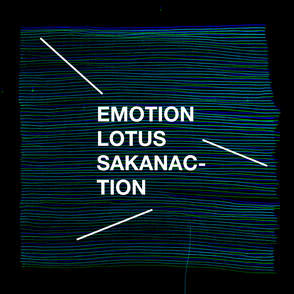
Mr. Children, commonly referred to by their contracted nickname "Misu-Chiru" (ミスチル), are a Japanese pop rock band formed in 1989. Consisting of Kazutoshi Sakurai, Kenichi Tahara, Keisuke Nakagawa, and Hideya Suzuki, they made their major label debut in 1992. They are one of the best selling artists in Japan and one of the most successful Japanese rock artists, having sold over 75 million records and creating the "Mis-chil Phenomenon" (ミスチル現象) in the mid-1990s in Japan. They held the record for the highest first week sales of a single in Japan for 15 years, with 1.2 million copies of their 10th single "Namonaki Uta" (名もなき詩), have 30 consecutive number 1 singles, replaced Glay as the all-male band to have the most number 1 albums on the Oricon charts, and won the Japan Record Award in 1994 for "Innocent World" and in 2004 for "Sign". As of 2012, Mr. Children has published fifteen original studio albums and 34 physical singles, along with five compilations, a live album, and fifteen home video releases.
J-pop, natively also known simply as pops, is a musical genre that entered the musical mainstream of Japan in the 1990s. Modern J-pop has its roots in traditional Japanese music, but significantly in 1960s pop and rock music, such as The Beatles and The Beach Boys, which led to Japanese rock bands such as Happy End fusing rock with Japanese music in the early 1970s. J-pop was further defined by new wave and crossover fusion acts of the late 1970s such as Yellow Magic Orchestra and Southern All Stars, then Eurobeat in the early 1990s, namely Namie Amuro.
Orange Range are a 5-member Japanese rock band, based in Okinawa, Japan. Formed in 2001, the band began with Spice Music and later signed with Sony Music Japan's gr8! records division in 2003. The band left gr8! records in 2010 to start their own label, Super Echo. In 2012, they signed with Victor Entertainment's Speedstar Records label.
High and Mighty Color was a Japanese rock band active from 2003 to 2010. They had two vocalists; a male and a female.

Xie or Hsieh is a Taiwanese surname. It is a variation of Xie, which is a Chinese-origin family name. It is estimated that there are more than ten million people with this surname, the majority of whom live in Taiwan, Southern China, South East Asia, America, Europe and Africa. It is particularly common in Taiwan where it is the 13th most common surname in 2016. It is also very common in the east Asian diaspora which historically tended to have disproportionately emigrated out of southern China. A 2013 study found that Xie was the 23rd most common surname in China, with 0.79% of the population having this surname. In 2019 it was again the 23rd most common surname in Mainland China. The majority of Xie are from south of China. It is the 34th name on the Hundred Family Surnames poem.
Eri Nobuchika is a Japanese singer-songwriter, under the Fearless Records label on Sony Music Associated Records. She currently resides in Tokyo.

Kiyonobu Inoue, better known exclusively by his stage name Inoran, is a Japanese musician, singer and songwriter. He is best known as the rhythm guitarist and co-founder of the rock band Luna Sea since 1986. He started his solo career in 1997. Luna Sea disbanded in 2000, and he formed Fake? with Oblivion Dust vocalist Ken Lloyd a year later. In 2005 he left Fake? and founded Tourbillon with Luna Sea vocalist Ryuichi Kawamura and Hiroaki Hayama. He rejoined Luna Sea when they reunited in 2010, and in 2012 formed Muddy Apes with bassist Taka Hirose and guitarist Dean Tidey, both from Feeder, and 8otto's vocalist Maeson.
Kento Handa is a Japanese actor, best known for his role as Takumi Inui/Kamen Rider Faiz in Kamen Rider 555. He plays many musical instruments including the guitar, bass, drums and the piano. His album "HOMEMADE" was released in 2017, and his album Seikatsu was released in 2018.
ayabie is a Japanese visual kei rock band signed to the label Tokuma Japan Communications. Their music consisted of a wide variety of sounds and moods, ranging from catchy and upbeat to heavy and hard-edged punk songs. Many of the band's costumes were designed by ID Japan or H. Naoto. In 2010, Kenzo, Intetsu, Yumehito and Takehito left the band because they did not share the direction taken after going major, and formed a new band also called "Ayabie", but written as "AYABIE". They are currently signed to the major company TOY'S FACTORY. Aoi remained in Tokuma Japan Communications as a solo artist, known as "Aoi from ayabie".
The discography for the Japanese band Mr. Children consists of 18 studio albums, 5 compilations albums and 38 singles. They are one of the best selling artists in Japan.

"Ikenai Taiyō" (イケナイ太陽) is the 17th single released from the Japanese pop band Orange Range.
Stereopony was a Japanese pop rock band that formed in Okinawa, Japan in 2007 and disbanded in 2012. The three-girl band consisted of Aimi Haraguni, Nohana Kitajima, and Shiho Yamanoha (drums). They were signed to the Sony Records music label. The band released 11 singles and three studio albums.

"Yuki no Hana" is a song recorded by Japanese singer Mika Nakashima. It was released on October 1, 2003, via Sony Music Japan as the fifth and final lead single for her second studio album Love (2003), and her 10th single overall. "Yuki no Hana" was distributed in two formats—a standard CD single and was made available digitally.
Naoto Nakamura, better known by his stage name Naoto Inti Raymi, is a Japanese singer-songwriter and composer. He was born in Mie Prefecture in Japan and later grew up in Chiba Prefecture. For two years from 2001, he used his given name Naoto as his stage name. In 2001, while he was still attending Chuo University, Naoto debuted into the major music scene with his single "Growing up!!" released by Sony Music Records. Then he kept releasing the total three singles and one album before graduating from his university in 2002.

"Honki Magic" is the sixth Japanese single released by Korean boy group The Boss. It was scheduled to be released on August 1, 2012 on their Japanese label Sony Music Entertainment. The single's B-side song "Ikenai 1・2・3" was already revealed to be featured in the upcoming movie Ai Ore!, which features member Karam.

"Hasu no Hana" is a song by Japanese band Sakanaction. The song was used as the theme song of the film Close Range Love (2014) starring Tomohisa Yamashita and Nana Komatsu. The version used in the film was given an initial release on October 8, 2014 digitally, followed by a single release featuring a different mix of the song on October 29, where it was paired with the song "Sayonara wa Emotion" as a double A-side single.

"Sayonara wa Emotion" is a song by Japanese band Sakanaction. Initially used as a 2013 jingle for the yobikō Tōshin High School, the song was recorded in full a year later. It was released on October 29, 2014, as a double A-side single with the song "Hasu no Hana".
Official Hige Dandism, commonly abbreviated Higedan (ヒゲダン), is a Japanese pop band formed in Shimane, Japan in 2012 by Satoshi Fujihara, Daisuke Ozasa, Makoto Narazaki and Masaki Matsuura. The "Higedan" in the band name roughly translates to "bearded man" in English. The 'Hige' translates to 'moustache/beard', and 'Dan' translates to 'man.'

"Hana no Furu Gogo" is the fifth single by Carlos Toshiki & Omega Tribe released by VAP on September 5, 1989. The song was a commercial tie-up with the 1989 Kadokawa Shoten movie Hana no Furu Gogo, an adaption of the 1988 novel of the same name by Teru Miyamoto. It was the band's last single before transferring from VAP to Warner Pioneer in 1990, as well as their second to last single in their career. It was also the only single to not be included in a soundtrack. The B-side, "Bad Girl," is from the band's album Bad Girl. The single charted at No. 26 on the Oricon chart.









